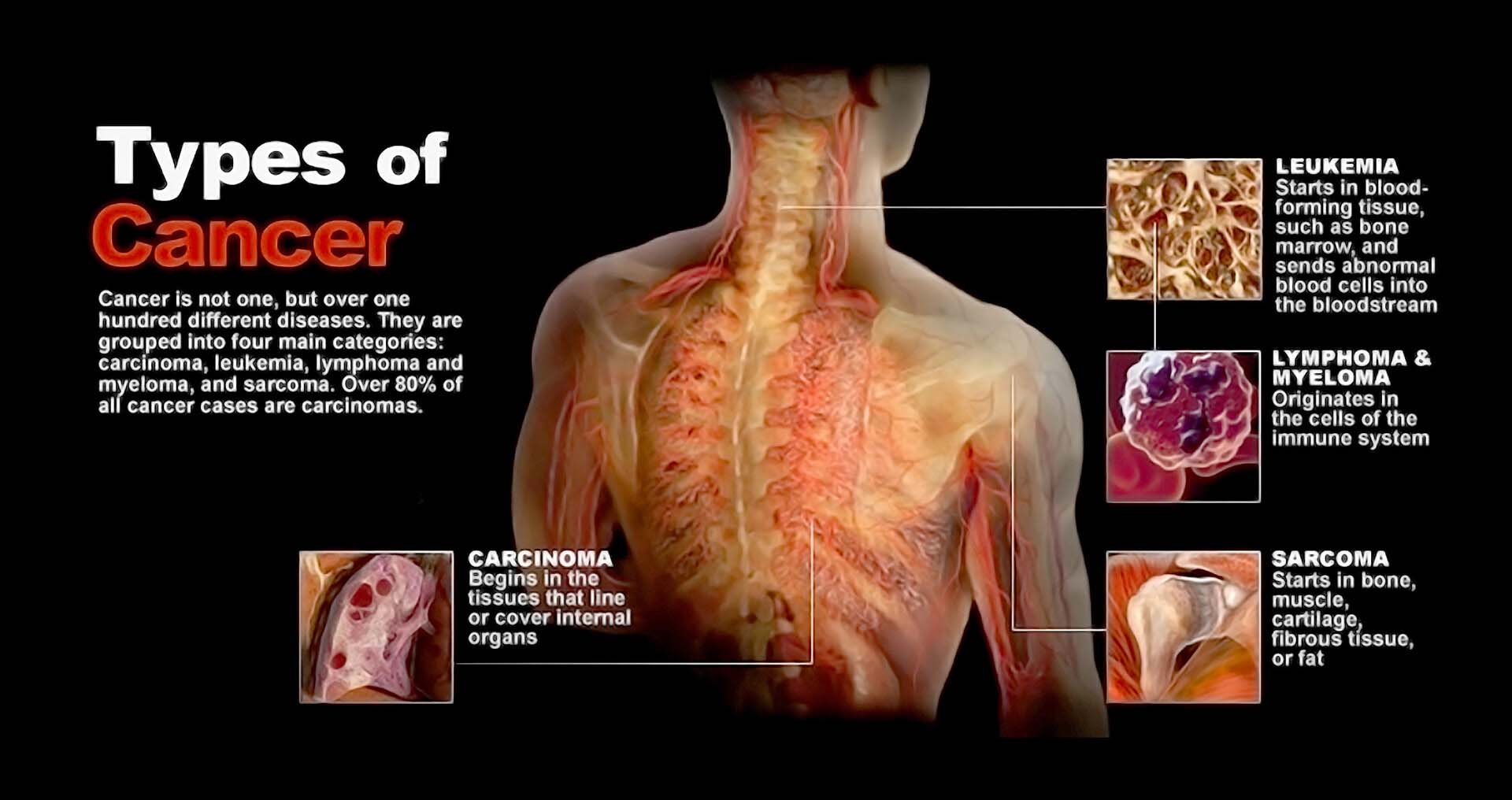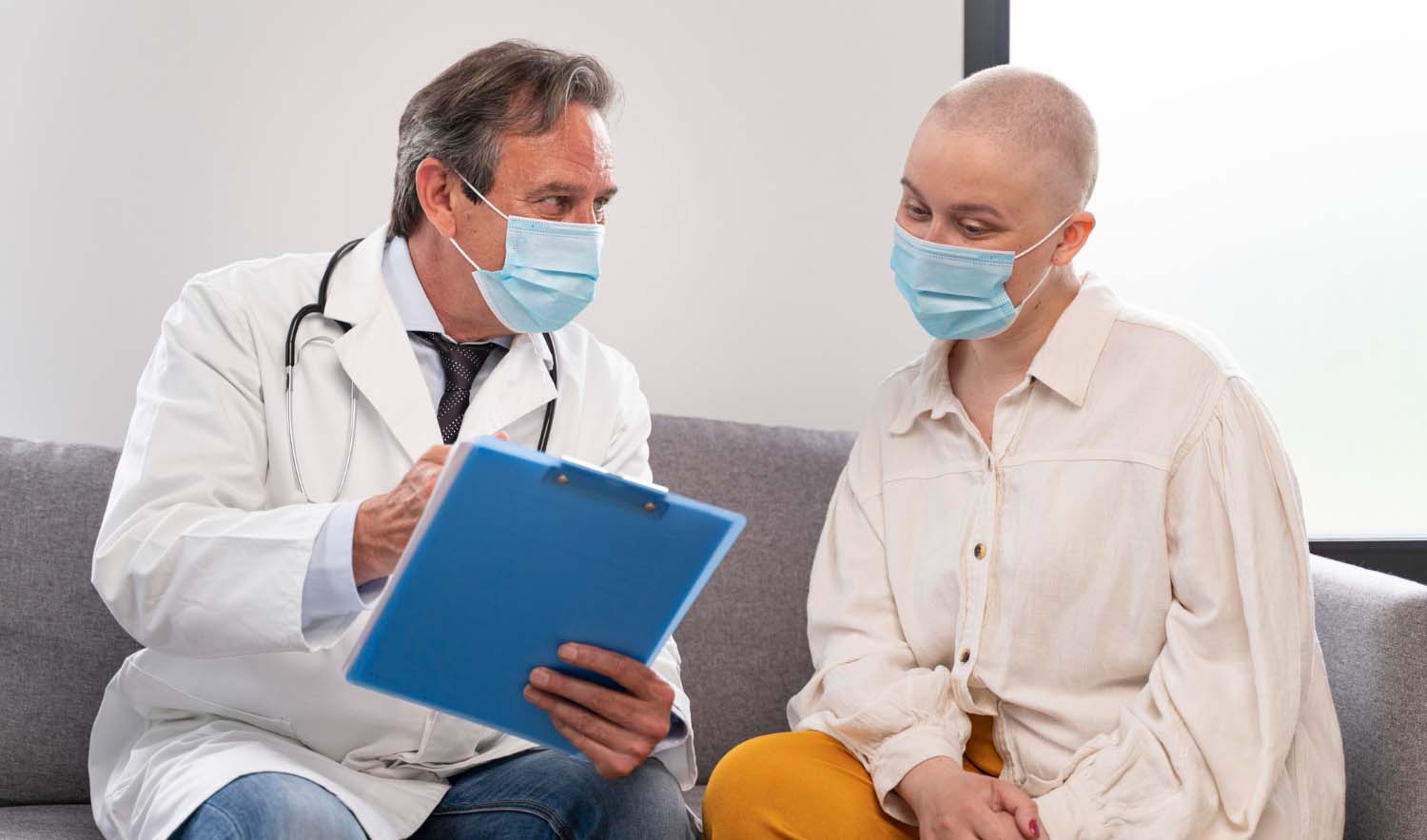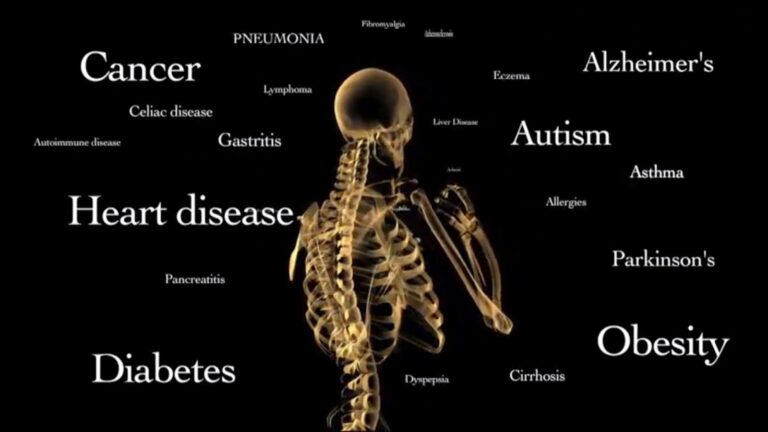Think of it as your health superhero training. We’re going to talk about what cancer is, how to keep an eye out for it, and, most importantly, how to stay on top of your well-being game. No need to be a health expert; we’re in this together, unravelling the mysteries of feeling great and staying ahead of the curve. So, grab your cape (or comfy socks), and let’s kick off this journey to a healthier, happier you!
Welcome to our comprehensive guide to understanding cancer, a disease that affects millions of people worldwide. With an estimated 1.8 million new cases and over 600,000 deaths from cancer in the United States alone, it’s important to be well-informed about this disease and take steps to stay healthy and aware of your risks. In this guide, we will cover everything from the basics of what cancer is to the latest advances in cancer research and treatment. Let’s get started!
Key Takeaways:
- Cancer is a disease that affects millions of people worldwide.
- It’s important to be well-informed about cancer and take steps to stay healthy and aware of your risks.
- Throughout this guide, we’ll cover everything from the basics of what cancer is to the latest advances in cancer research and treatment.
What is Cancer?
Cancer is a complex disease that can develop in various parts of the body. It happens when abnormal cells grow uncontrollably and start invading healthy tissues. These abnormal cells can also spread to other parts of the body through the lymphatic system or blood vessels, leading to metastasis.
But what causes cancer?
There are many possible causes of cancer, including genetics, environmental factors, and lifestyle choices. Some examples of environmental factors that may increase the risk of cancer include exposure to chemicals, radiation, and certain viruses.
How does cancer affect the body?
Cancer affects the body on a cellular level. It begins when normal cells start dividing and growing uncontrollably, forming a mass of cells called a tumor. These cells can damage nearby tissues and organs, and can also spread to other parts of the body through the bloodstream or lymphatic system.
“Cancer affects the body on a cellular level.”
Are there different types of cancer?
Yes, there are many different types of cancer that can affect different parts of the body. Some common types of cancer include:
| Type of cancer | Description |
|---|---|
| Breast cancer | Affects the breast tissue in both men and women |
| Lung cancer | Develops in the lungs and is often caused by smoking |
| Colorectal cancer | Affects the colon and rectum |
| Prostate cancer | Develops in the prostate gland in men |
Each type of cancer has its own specific characteristics and potential risk factors. It is important to understand the different types of cancer and their symptoms to ensure early detection and treatment.
Now that we have a basic understanding of what cancer is, the next section will delve further into the different types of cancer.
Types of Cancer

Cancer is not a single disease, but rather a collection of diseases characterized by the uncontrolled growth and spread of abnormal cells. There are many different types of cancer, each with its own unique set of characteristics and risk factors.
Common Types of Cancer
Some of the most common types of cancer include:
| Type of Cancer | Description |
|---|---|
| Breast Cancer | A cancer that develops in the breast tissue, most commonly in women but can also affect men. |
| Lung Cancer | A cancer that forms in the tissues of the lungs, often caused by tobacco smoke. |
| Colon Cancer | A cancer that starts in the large intestine (colon) or rectum. |
| Prostate Cancer | A cancer that develops in the male prostate gland. |
Rare Types of Cancer
Although less common, there are also many rare types of cancer, including:
- Mesothelioma
- Chronic lymphocytic leukemia
- Thyroid cancer
- Pancreatic cancer
- Brain cancer
What Causes Different Types of Cancer?
There are many different factors that can cause cancer, including:
- Genetics
- Environmental factors (e.g. air pollution, exposure to chemicals)
- Lifestyle choices (e.g. tobacco use, poor diet, lack of exercise)
- Exposure to certain viruses and bacteria (e.g. human papillomavirus (HPV), hepatitis B and C viruses)
It is important to note that not all cases of cancer have a clear cause or identifiable risk factor.
Common Symptoms and Signs
Understanding the common symptoms and signs of cancer is crucial for early detection and treatment. Many of the symptoms associated with cancer can also be caused by other conditions, which is why it’s important to consult a healthcare provider if you have any concerns.
Physical Changes
Cancer can cause physical changes in the body, such as:
- Unexplained weight loss or gain
- Fatigue and weakness
- Changes in skin texture or color
- Enlarged lymph nodes or lumps
Pain
Pain can be a symptom of many types of cancer, including bone, pancreatic, and prostate cancer. If you have persistent pain that isn’t relieved with over-the-counter medication, it’s important to seek medical attention.
Unusual Bleeding or Discharge
Unusual bleeding or discharge can be a symptom of cancer, including:
- Blood in urine or stool
- Abnormal vaginal bleeding or discharge
- Bleeding from the rectum
Other Symptoms
Other symptoms that may indicate the presence of cancer include:
- Fever or night sweats
- Difficulty swallowing
- Chronic cough or hoarseness
- Changes in bowel or bladder habits
If you are experiencing any of these symptoms or have concerns about your health, it’s important to consult a healthcare provider. Early detection and treatment can improve outcomes and increase the chances of successful treatment.
Diagnosis and Screening

Early detection is critical in the fight against cancer. Regular cancer screenings and prompt medical attention when symptoms arise can help with early diagnosis and increase the chances of successful treatment.
When it comes to cancer diagnosis, doctors may use various tests and procedures, including:
| Diagnostic Test | Description |
|---|---|
| Biopsy | A sample of tissue is removed and examined under a microscope to check for cancer cells. |
| Imaging Tests | These tests include X-rays, CT scans, MRIs, and ultrasounds. They are used to create images of the inside of the body to check for abnormalities or tumors. |
| Blood Tests | These tests measure certain substances, such as tumor markers or abnormal levels of blood cells, indicating the presence of cancer. |
Screening tests, on the other hand, are performed in asymptomatic individuals who are at an increased risk of developing cancer. These tests may include:
- Mammograms for breast cancer
- Pap tests for cervical cancer
- Colonoscopy for colon cancer
- Prostate-specific antigen (PSA) blood test for prostate cancer
If any abnormalities are detected during screening, further diagnostic tests will be performed to determine if cancer is present.
If you are experiencing symptoms or are at an increased risk of cancer, talk to your doctor about screening and diagnostic options. Remember, early detection is key to successful cancer treatment.
Cancer Treatment Options: Understanding Your Choices
When it comes to treating cancer, there is no one-size-fits-all approach. Treatment options will depend on various factors, including the type of cancer, its stage, and the individual’s overall health. Below are some of the most common treatment options:
| Treatment: | Description: |
|---|---|
| Surgery | A procedure to remove cancerous tissue from the body. |
| Radiation Therapy | Using high-energy radiation to shrink tumors and kill cancer cells. |
| Chemotherapy | Using drugs to kill cancer cells. |
| Immunotherapy | Using medications to stimulate the immune system to target and attack cancer cells. |
| Targeted Therapy | Using drugs that target specific proteins or genes that help cancer cells grow and divide. |
Sometimes, a combination of these treatments may be used for the best outcomes. Your doctor will work with you to develop a personalized treatment plan that meets your unique needs.
Other Considerations:
- Palliative care: This focuses on managing symptoms like pain, nausea, and fatigue that may come with cancer treatment. It can help improve one’s quality of life and may be given alongside curative treatments.
- Clinical trials: Researchers are always exploring new ways to treat or prevent cancer. You may have the option to participate in a clinical trial to receive a newer, more innovative form of treatment under close supervision.
It’s important to discuss the benefits, risks, and potential side effects of each treatment option with your doctor. Together, you can develop a plan that feels best for you, your health, and your lifestyle.
Lifestyle and Prevention Strategies

While there is no surefire way to prevent cancer, certain lifestyle changes can reduce the risk of developing the disease. By making small modifications to your habits, you can take steps towards a healthier life.
Quit Smoking
If you are a smoker, quitting is one of the most important things you can do to reduce your risk of cancer. Smoking is the leading cause of preventable deaths worldwide, and it greatly increases your risk of developing lung, throat, and other types of cancer.
Eat a Healthy Diet
A balanced diet rich in fruits, vegetables, and whole grains is essential for maintaining good health and reducing the risk of cancer. Avoid processed foods and limit your consumption of red and processed meat, which have been linked to increased cancer risk.
Exercise Regularly
Regular physical activity can help maintain a healthy weight and reduce the risk of several types of cancer, including breast and colon cancer. Aim for at least 150 minutes of moderate exercise per week to reduce your risk of cancer.
Protect Your Skin
Exposure to UV radiation from the sun and tanning beds can increase your risk of skin cancer. Protect your skin by wearing protective clothing, hats, and sunglasses, and apply sunscreen with at least SPF 30 when spending time outdoors.
Get Screened
Regular cancer screenings can help detect cancer early, which greatly increases the chances of successful treatment. Talk to your doctor about when and how often you should be screened for different types of cancer.
By incorporating these lifestyle changes into your daily routine, you can reduce your risk of cancer and take control of your health.
Cancer Support and Resources
Receiving a cancer diagnosis can be overwhelming and emotionally draining. Fortunately, there are many cancer support services and resources available to help patients and their loved ones cope with the physical and emotional challenges of cancer.
Cancer Support Groups
Cancer support groups provide a safe and confidential space for individuals to connect with others who are going through a similar experience. These groups can be in-person or online and are led by trained professionals or fellow cancer survivors. The American Cancer Society offers a searchable database of cancer support groups by location and type of cancer.
Counseling and Therapy Services
Counseling services can provide patients and their families with emotional support, coping strategies, and tools for managing stress and anxiety. Trained therapists can also help patients adjust to changes in their body image and relationships. There are many counseling services available, including those provided by hospitals and cancer treatment centers.
Cancer Resource Centers
Cancer resource centers offer a wide range of support services, including educational materials, nutritional counseling, exercise programs, and integrative therapies such as acupuncture and massage. These centers can also provide information about financial assistance programs and resources for transportation and lodging during treatment.
Online Support Communities
Online support communities can provide a sense of belonging and connection for individuals who are unable to attend in-person support groups. There are many online communities available, including forums, chat rooms, and social media groups. The Cancer Support Community offers a comprehensive online support network that includes discussion boards, live chat rooms, and online workshops.
Reputable Online Resources
There are countless online resources for individuals affected by cancer, but it’s important to rely on reputable sources for accurate information. The National Cancer Institute, American Cancer Society, and CancerCare are just a few examples of trustworthy resources that offer comprehensive information on cancer prevention, treatment, and support services.
Remember, seeking support and resources during a cancer diagnosis is a sign of strength, not weakness. Reach out for help when you need it and take advantage of the many services and resources available to you.
Advances in Cancer Research
Cancer research has made significant advancements in recent years, providing hope for those affected by this disease. These breakthroughs have resulted in innovative treatment options that have the potential to improve patient outcomes and provide a higher quality of life.
One of the major areas of focus in cancer research is immunotherapy, a type of treatment that utilizes the body’s immune system to fight cancer cells. This approach has shown promise in treating several types of cancer, including lung cancer, melanoma, and bladder cancer. Clinical trials have demonstrated that immunotherapy can lead to long-term responses in certain patients.
Another promising area of cancer research is targeted therapy, which is designed to treat specific types of cancer cells while minimizing damage to healthy cells. This approach has shown success in treating breast cancer, leukemia, and lymphoma. Researchers are continually identifying new target molecules and developing targeted therapies to effectively treat specific types of cancer.
Promising Clinical Trials
Clinical trials are essential in advancing cancer research and developing new treatments. Many ongoing clinical trials are exploring new therapies for a variety of cancers, including pancreatic cancer, ovarian cancer, and brain cancer.
A recent clinical trial investigated a new type of treatment for triple-negative breast cancer, a particularly aggressive form of breast cancer that is difficult to treat. The treatment involved combining chemotherapy with a drug that targets a specific protein called PARP. The results showed that the combination therapy improved response rates and prolonged progression-free survival in patients with triple-negative breast cancer.
The Importance of Ongoing Research
The need for ongoing cancer research cannot be overstated. Cancer is a complex disease with many different types and subtypes, each with unique characteristics and risk factors. Ongoing research is essential to developing new treatment options that are more effective and have fewer side effects.
Furthermore, research can help identify new risk factors and prevention strategies for various types of cancer. For example, recent research has shown a link between prolonged sitting and an increased risk of developing several types of cancer, including ovarian, endometrial, and colon cancer. This highlights the importance of maintaining an active lifestyle and taking frequent breaks from sitting.
In Conclusion
Cancer research is essential in the fight against this disease. Advances in cancer research, including breakthrough treatments and promising clinical trials, provide hope for those affected by cancer. Ongoing research is critical in developing new treatment options and identifying new risk factors and prevention strategies.
Conclusion
Understanding cancer is key to taking action against it. By staying informed about the disease and its risk factors, you can take steps to reduce your risk and detect cancer early. Remember to maintain a healthy lifestyle, get regular cancer screenings, and seek support if you or a loved one is affected by cancer.
While cancer can be a daunting diagnosis, there is hope. Thanks to ongoing research and advances in cancer treatment, more and more people are surviving and thriving after a cancer diagnosis. With continued support and dedication, we can work towards a future where cancer is no longer a prevalent threat.
So let’s stay informed, stay healthy, and stay aware. Together we can make a difference in the fight against cancer.
FAQ
What is cancer?
Cancer is a disease characterized by the uncontrolled growth and spread of abnormal cells in the body. It can affect different organs and tissues, disrupting their normal function.
What are some common types of cancer?
Common types of cancer include breast, lung, colon, and prostate cancer. However, there are many other types that can occur in various parts of the body.
What are the common symptoms of cancer?
Common symptoms of cancer can vary depending on the type but may include persistent fatigue, unexplained weight loss, pain, changes in the skin, lumps, and unusual bleeding.
How is cancer diagnosed?
Cancer can be diagnosed through various methods, including imaging tests like CT scans and MRIs, biopsies, blood tests, and screenings for certain types of cancer like mammograms and colonoscopies.
What are the treatment options for cancer?
Cancer treatment options may include surgery, radiation therapy, chemotherapy, immunotherapy, targeted therapy, and hormonal therapy. The treatment plan is determined based on individual circumstances and the type and stage of cancer.
Can cancer be prevented?
While not all cases of cancer can be prevented, there are lifestyle changes that can reduce the risk. These include avoiding tobacco and excessive alcohol consumption, maintaining a healthy diet, exercising regularly, and protecting the skin from the sun’s harmful UV rays.
Where can I find support and resources for cancer?
There are various resources available for cancer patients and their loved ones, including support groups, counseling services, and reputable online platforms that provide information and emotional support.
What are the recent advances in cancer research?
Recent advances in cancer research have led to breakthrough treatments, innovative therapies, and promising clinical trials. Ongoing research plays a critical role in improving cancer outcomes and developing more effective treatments.



Understanding Cancer: Get Informed, Stay Healthy & Aware